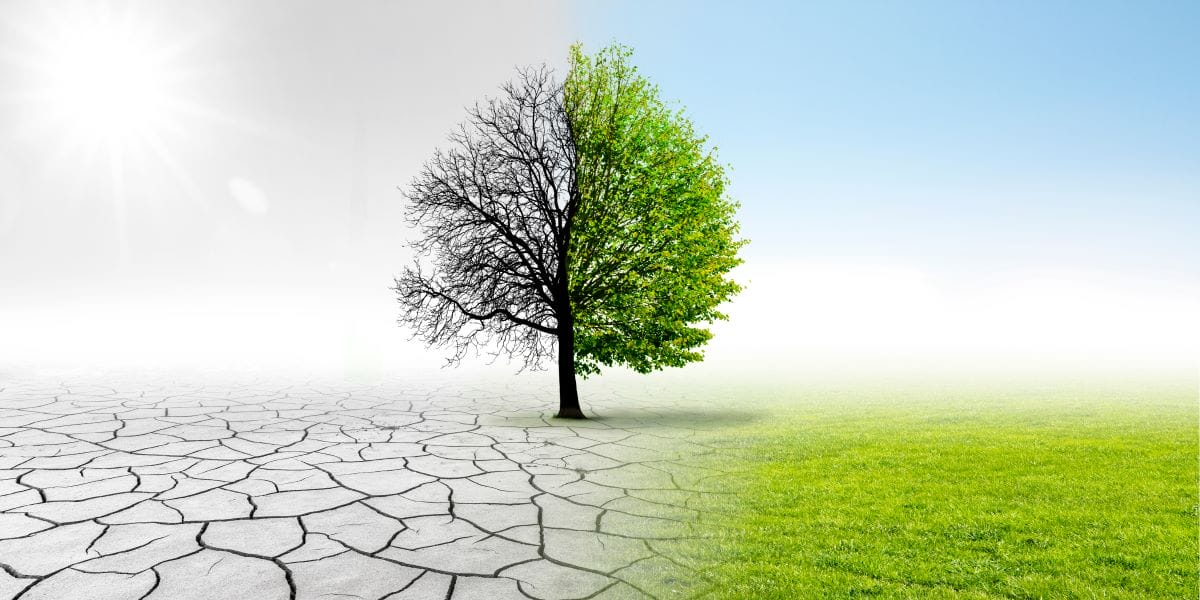We can’t say we weren’t warned. In 1896, Swedish scientist Svante Arrhenius predicted that changes in atmospheric carbon dioxide levels could alter Earth’s surface temperature through the greenhouse effect. And for at least the past 50 years, scientists have used ever-increasing amounts of data to explain how climate change poses profound risks to our life on this planet.
Sadly, these warnings have not yet resulted in the kind of profound responses necessary to mitigate these dangers. A recent global stocktake reveals that the 2015 Paris Agreement goals to limit temperature increases to 1.5 degrees – which means reducing emissions by 45 percent by 2030 and reaching net zero by 2050 – are not being met by any of the biggest emitters.
So it should be no surprise that the planet had its hottest week ever in July and is entering “uncharted territory”, according to the World Meteorological Organization. Wildfires, scorching temperatures, typhoons, and floods have devasted communities across the world. If we do not change direction in the coming years, we can add rising sea levels, collapsing ecosystems, and many more terrible outcomes to the list of “new normals”.
All this information is enough to drive many people to despair or at least a resigned apathy to our fate. It doesn’t have to be this way.
Climate change, collective action
In her book The Future We Choose, Christiana Figueres outlines the terrible scenarios awaiting a world that is more than 3C warmer by 2100, saying, “The only uncertainty is how long we’ll last”. But she also outlines a vision for a planet where we do achieve net zero. The payoff is that this overhaul of our energy and industrial practices would result in abundant power, renewed ecosystems, and air that is cleaner than at any time since the Industrial Revolution.
Faced with this fork in the road, Figueres, who was the leader of the 2015 Paris Accords, describes this coming decade as “the most consequential in human history”. And to achieve a positive goal, she says every nation, business, and individual must join the effort to play their part.
We have many great examples of how new technologies, allied with a bold vision for the future, can help in this fight, especially here in the UAE. This summer, the government announced plans to invest up to $54 billion in renewable energy over the next seven years to meet its clean energy target. It also unveiled a $4.5 billion finance initiative for African clean energy. This which underscores the importance of involving developing nations in the process. At COP28, this same inclusive spirit will be critical to finding workable solutions.
Read: UAE’s COP28 recognizes technology’s role in climate change
Cities and businesses
Businesses must take a cue from these efforts by working harder to dramatically reduce their emissions. For example, in construction and other forms of manufacturing, “embodied carbon” represents the carbon emissions released during the lifecycle of materials, including extraction, manufacturing, transport, and disposal. This must all be accounted for in our calculations and resulting actions, to ensure transformative practices to our present systems.
Organizations must also pay much more attention to sustainable finance. This includes channeling investment funds away from any polluting industries and investing instead in the energy transition.
Cities must promote sustainability through carrot-and-stick approaches. For example, New York City is adding a tax for buildings that exceed agreed carbon emissions thresholds. The same principle could be extended to personal fuel consumption, electricity, or water.
And at an individual level, we all have a role to play. Students often ask me how they can get involved in sustainability efforts. My response is that regardless of what you study – public policy, economics, civil engineering – you can steer your interests towards combating the climate crisis. We can all play a role by being more mindful of our consumerist and waste habits. Also, we can eat a more local and plant-based diet, and find more energy-efficient alternatives at home and on the road. We can all contribute.

Future-proofing
Incremental upgrades across the board can and will lead to big outcomes. This is the rationale behind NYU Abu Dhabi’s (NYUAD) recently launched Climate Action Plan (CAP). It is aimed at enabling the university to measure its greenhouse gas emissions. The plan also enables the university to set clear, measurable targets for reducing these emissions in the coming years. The plan is in alignment with NYU’s carbon neutrality goal and the UAE Net Zero 2050 vision.
We’re also talking to potential partners in both the private and public sectors about how we act and live sustainable and responsible lives as individuals, institutions, and communities.
NYUAD this year is chairing the newly formed Universities Climate Network (UCN). It consists of UAE-based universities and higher education institutions. The network collaborates on facilitating dialogues, workshops, public events, policy briefs, and youth participation in the lead-up to and beyond COP28.
We can make savings and efficiencies. We can consume less. And then looking forward 10-15 years, we know the UAE will produce more nuclear and solar energy. Along with new technologies, these will make us much more sustainable over time. All these efforts will act as a proof of concept to other nations that change is possible.
We cannot give up hope. Climate change is real. It is a profound threat to our way of life, as this summer has shown. However, solutions are within reach if we act collectively as governments, organizations, CEOs, and citizens.
Antonios Vouloudis is inaugural director of Sustainability and Environmental Stewardship, NYU Abu Dhabi.
For sustainability stories, click here.








